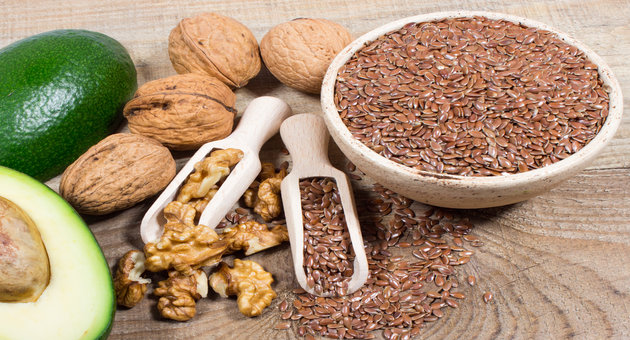Omega 3 fatty acids are basically polyunsaturated acids that support a multitude of bodily functions and help prevent and reduce the risk of numerous diseases. Omega 3 helps with weight loss, supports healthy pregnancy, promotes athletic development and reduces the risk of heart disease. It is therefore essential to know why exactly omega 3 is so important for you and how you can include omega 3’s in your diet.
HEALTH BENEFITS
1 . Omega 3 supports brain development in pregnancies and early life. Infants should be fed formula fortified with omega 3 and pregnant women should definitely ensure they are getting enough Omega 3 to help with brain development of the fetus.
2 . Omega 3 has been linked with preventing and reducing the risk of numerous diseases such as High cholesterol, Cancer, Diabetes, Inflammation, Arthritis,
3 . Several studies have shown that Omega 3 consumption is directly related to lower risks of Asthma in young adults and children. Asthma is caused by inflammation and swelling of the airways of the lungs and Omega 3 fatty acids tend to reduce this inflammation.
4 . While some mental decline is inevitable with age, studies have shown that age related mental degeneration is significantly reduced by introducing Omega 3 into one’s diet, as is the risk of Alzheimer’s disease.
5 . Eye Health is improved by DHA (Docosahexaenoic Acid) which is a type of Omega 3. When you are DHA deficient you may result in vision issues. The retina and brain contains DHA as a major component so it is vital to ensuring good eye health.
FOODS RICH IN OMEGA 3’s:
Here are some foods that are excellent sources of omega 3 fatty acids:
1 . Salmon is super rich in Omega 3 as are Mackerel (Bhangara) and Sardines. Fish is also full of protein and is great for you to add to your diet if you’re looking at staying healthy and keeping fit.
2 . Flax Seeds are one of the best vegetarian sources of Omega 3 fatty acids. It has a laxative effect and helps fight heart disease and cholesterol. To preserve flax seeds ensure you store them in an airtight container.. You can add them to your breakfast cereals and salads or just munch on them throughout the day. Just make sure you hit your daily requirement of 2 tablespoons per day!
3 . Chia Seeds are another great plant source of Omega 3 and they are great for your digestion by providing fiber and slowly breaking down carbohydrates in your body. Just like flax seeds, you can chew on chia seeds as a snack, add them to your salad or pop them in a smoothie or morning juice.
4 . Walnuts are super nutritious and taste great in a salad or eaten mixed with other dry fruits and nuts or our favorite is to mix them with yogurt and have them as desert. They contain iron and fiber and protein so you really have a whole lot of goodness in this little nut. The great thing about walnuts is that just handful of them will ensure you meet your omega 3 requirement for the day.
5 . Soybeans are rich in omega 3 fatty acids and just a cup of soy milk will make you meet your required daily intake. If you had to replace dairy with anything let it be soy as it contains calcium, iron, protein, fiber, folate and vitamin K. Even if you didn’t have a dairy allergy, soy milk may be the way to go!
Need to consult a Doctor? Now consult Specialist Doctors for free on 1mg.
